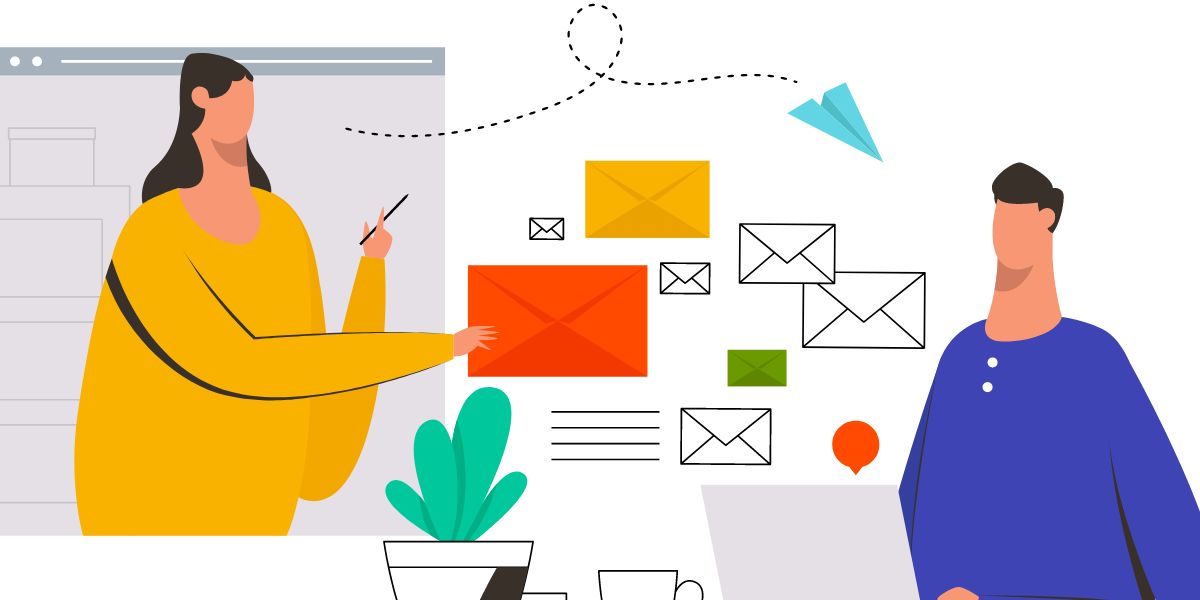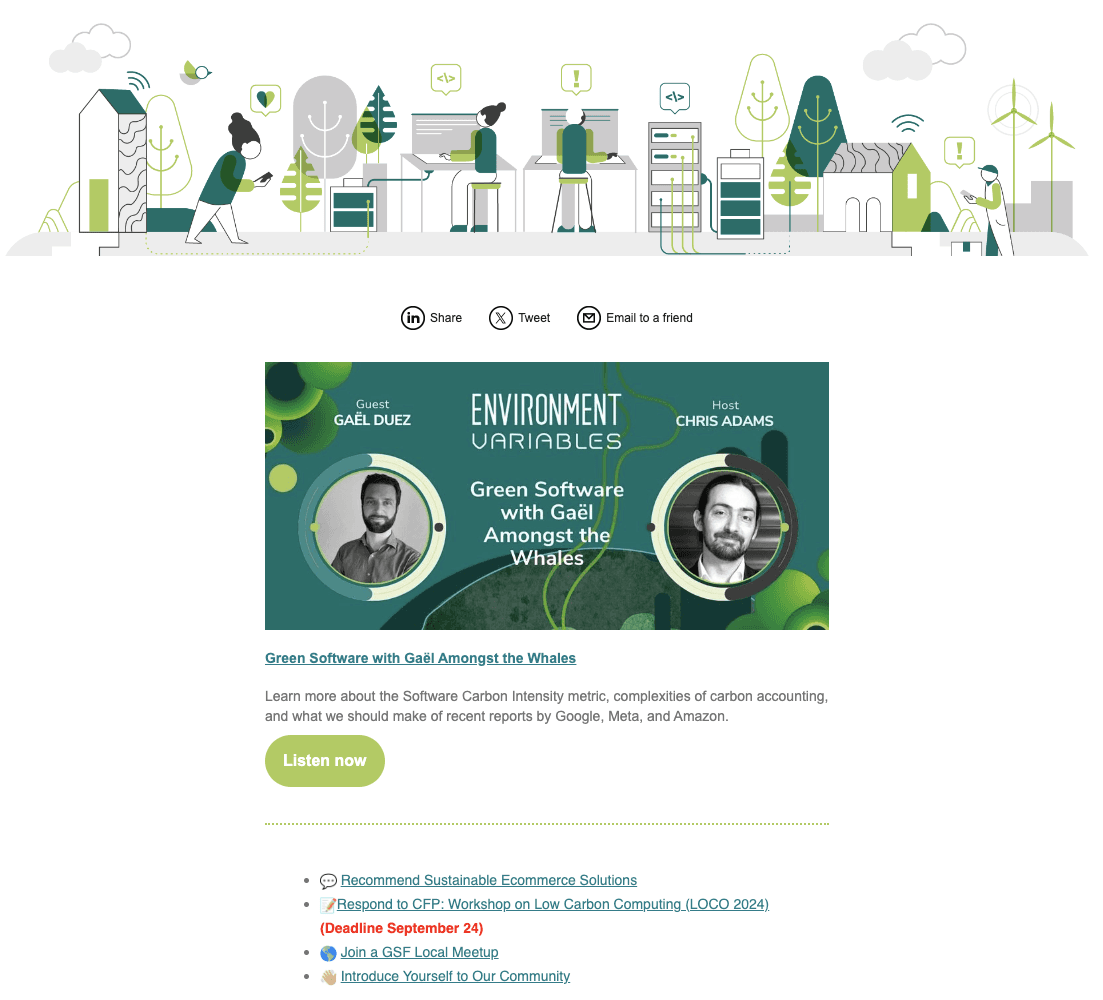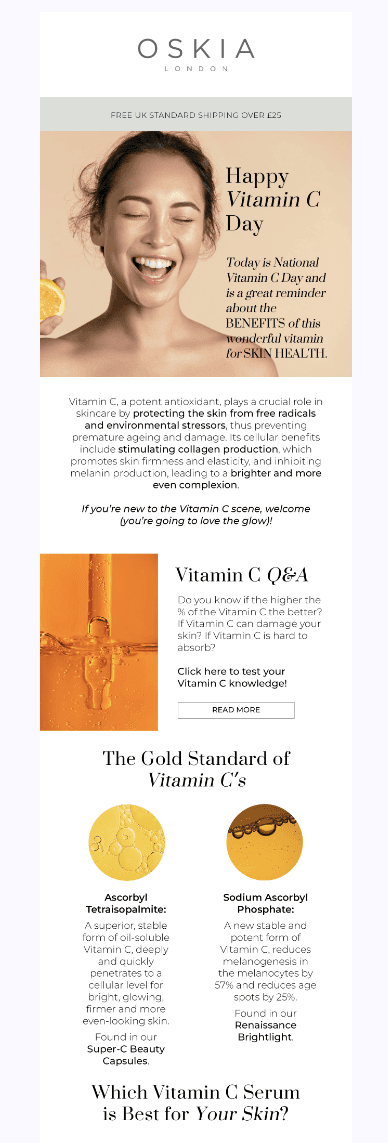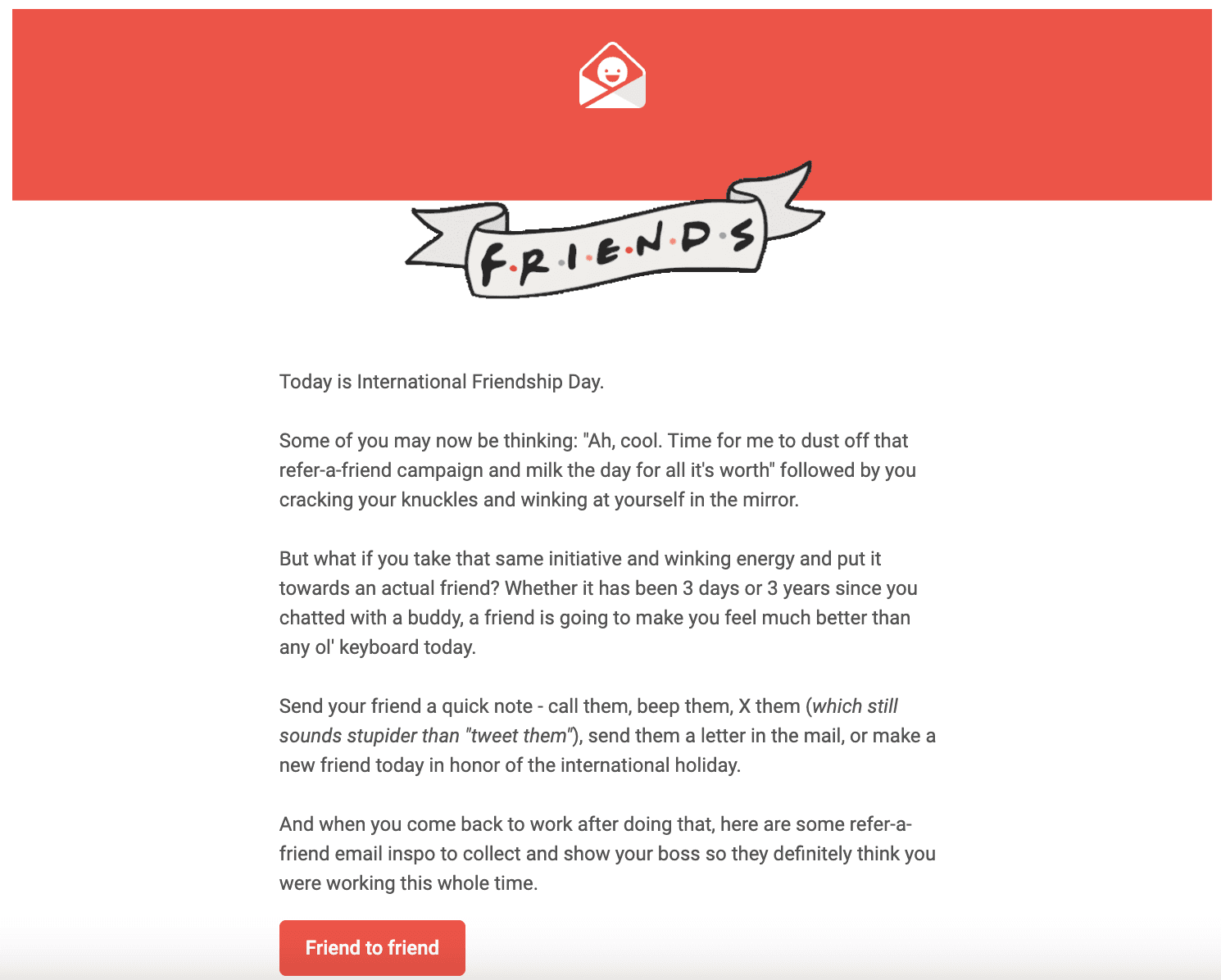As with all marketing channels, email marketing doesn’t just involve a single technique or strategy.
Instead, there are lots of nuances that you can use to your advantage to maximise your return on investment.
In email marketing, relationship emails are campaigns that go beyond the typical sales emails to offer something more meaningful for subscribers.
The aim is to encourage higher levels of engagement and ultimately more loyalty for your business as a whole.
So here’s what you need to know about relationship emails, including what they are and how to use them for your next campaign.
What Are Relationship Emails?

Relationship emails are email campaigns that nurture the bond between a company and its customers.
They are classed as any type of email that is not considered a direct promotional or marketing email. Even if every email ultimately looks to create a sale, relationship emails take another approach by dropping the obvious push to purchase.
Building a meaningful relationship through email is all about humanising your email list. So instead of considering your list purely as ‘sales prospects’, relationship emails look to treat each contact as a real person.
Why Are Relationship Emails Important?
Emails that just sell sell sell can feel a little one-sided.
Think of it like a friend who only contacts you when they need something. Soon enough, it’s going to become tedious to keep interacting with them, especially when there is always an ulterior motive.
With relationship emails, you are looking to focus on the wants and needs of your subscribers, while also looking to give back to them. In other words, you take steps to make it worthwhile for users to remain on your list.
After all, there is a reason why users have subscribed to your mailing list and it’s not just so they can receive a barrage of sales emails. So what relationship emails do is offer a breather from direct selling to create a more meaningful and human connection.
Types Of Relationship Emails
Apology emails: When something has gone wrong either within the company with a customer, send a personalised email to reach out either to your entire mailing list or the affected customer(s). Apology emails can feel awkward to write, but they show that you take the issue seriously which can go a long way in creating a positive long term outcome for brand reputation.
Loyalty or rewards emails: Show your appreciation if customers are loyal to your brand by offering email discounts or loyalty perks. You can also attach a discount code to any newsletter signup forms on your website.
Milestone emails: Celebrate birthdays or even customer anniversaries by sending a milestone email to the customer. A famous example of this is Subway which offers a free cookie to registered subscribers on their birthday. You don’t necessarily have to offer anything, but at least acknowledging the occasion can go a long way in humanising your email campaigns.
Survey or feedback emails: Make the effort to learn about the experience your customers have with your business.
Thank you emails: It never hurts to say thank you once in a while. For small or independent businesses especially, thanking your customers for their business distinguishes your brand from your competitors.
Welcome emails: Research has found that welcome emails have an average open rate of 91.43%, making them one of the most successful email types to exist.
💡Learn more: What Are The Different Types Of Emails?
Relationship Email Examples
Relationship emails come up with another way of communicating than just ‘Hey, here is my product please buy it’.
They could offer tips on how to get the most out of previous purchases, or information about trending topics of interest.
Alternatively, a relationship email may look to encourage better mental or physical health. For example, a physiotherapist may send out stretches to ease back pain that the user could do at home.
Remember, the goal here is to add value and also build that connection on a human level rather than just sell sell sell.
While not featured below, emails which allow subscribers to opt out of potential holidays that may cause upset (i.e. Mother’s Day or Father’s Day) are also examples of relationship emails. That’s because they put the emotional well-being of the subscriber before making a sale, which can come across as not only caring but also more genuine.
So let's take a look at a few examples:
Bitly

There are only so many ways you can talk about a link shortening tool until you need to strike out with something different.
The Bitly team has demonstrated a genius way of performing customer engagement in this above relationship email example.
Since everyone loves dogs, this campaign gives you that warm fuzzy feeling that you get from interacting with dogs in real life. But more than that, it tells you a brand story you can actually get on bark with.
Every detail has been carefully crafted which makes you want to read on rather than click off.
Green Software Foundation

As we’ve established, building a relationship is about ditching one-sided communication in favour of involving your subscribers.
Look no further than Green Software Foundation who masterfully include their subscribers by encouraging them to introduce themselves and interact with their wider network.
It is clear from the way this email has been structured that the end user was firmly in mind, as it really makes it feel like this campaign is personally speaking to you.
There is even an invitation for an in-person event where that relationship-building mantra can happen in real life too.
Oskia

The standard order of things for beauty brands is to get subscribers through any means possible and just blast them with daily sales emails.
But what we know is that this lacks any real value for subscribers. So who can blame users for no longer opening or even unsubscribing from such inbox clutter?
Oskia offers a breath of fresh air (as well as a fresh face!) in the beauty email marketing space. The brand regularly sends out emails that offer in-depth specialist knowledge about various skincare topics or ingredients that are genuinely helpful.
While there is a suggestion of related products at the end, this still feels very subtle compared to how most brands go for the big sales push without really explaining what they promised in the subject line.
Really Good Emails

You set the bar pretty high when you call your website and subsequent newsletter Really Good Emails.
Not to worry, as RGE (as they are referred to by the cool kids) make good on their promise.
As well as showcasing the best email campaigns on the internet, Really Good Emails also looks to encourage meaningful reactions, including offline in the real world.
We adore this campaign that most likely made a huge difference to at least one person, especially as it has never been more important to take care of your mental health, as well as each other.
How Else Can You Build Better Customer Relationships Through Email?
DO
Think about how you can address the wider needs of your customers so that not every email you sell is a direct sales campaign.
Look to use your emails as a force for good by thinking about not just your subscribers but also wider global issues to create a positive impact.
Choose your email provider wisely, such as opting for sustainable alternatives to Mailchimp.
DON’T
Get user data by using email scraper tools which aren’t just against anti-spam laws, but also mean those who receive your campaigns are unlikely to be interested in receiving your campaigns or engaging with them.
Use no-reply emails which create a one-sided line of communication with your subscribers.
Over-engage by sending constant sales messaging on a daily basis. Also avoid using sales pressure tactics in the subject line or body copy which might be flagged as spam.
Build A Greener Relationship With Email Marketing With EcoSend
When looking to build more meaningful and ultimately more valuable relationships with your subscribers, why not let them know your emails are sustainable because they are sent via EcoSend?
By switching your email provider to EcoSend, you can reduce the carbon footprint of your marketing campaigns. We’ll also give you a badge to use in your email footer to show your commitment to the climate.
Combine your sustainable marketing tools with relationship building emails for a winning combination that both your campaigns and the planet will benefit from!
Sign up for your free 7 day trial of EcoSend to see what we’re all about.
Or, drop us a message if you have any questions or would like to schedule a demo call with our team.



